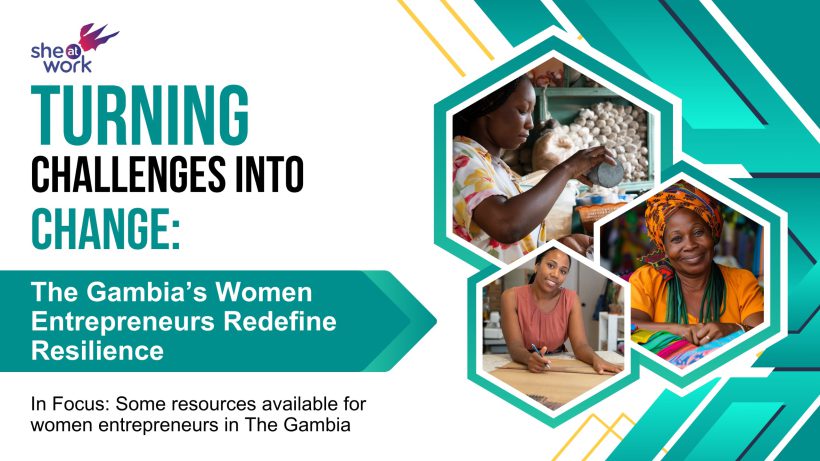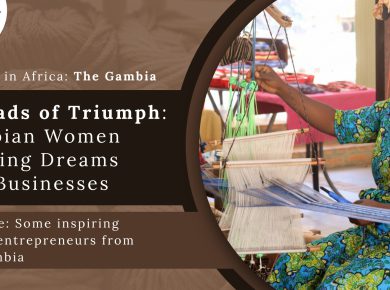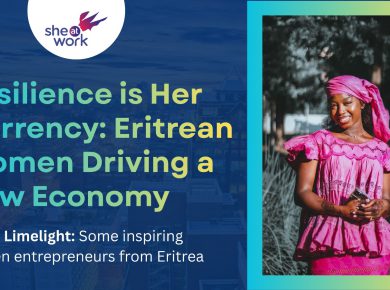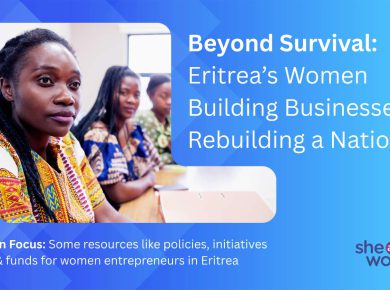In Focus: Some resources available for women entrepreneurs in The Gambia
#SheInspires #WomenOfTheGambia #EntrepreneurSpirit #ResilientWomen #EmpowerGambia
Women entrepreneurs in The Gambia which is known as “The Smiling Coast of Africa”, due to its friendly people and pleasant climate, are moving ahead. Actually, they are redefining resilience and innovation in one of Africa’s smallest yet most vibrant economies. Despite limited resources, these women are transforming challenges into opportunities, leading enterprises that range from food processing and handicrafts to sustainable agriculture and tourism. Their ventures are not only helping households thrive but are also fueling community development and national growth.
The Rise of Women Entrepreneurs in The Gambia
Over the past decade, women’s entrepreneurship in The Gambia has gained momentum, thanks to the rise of supportive collectives, microfinance schemes, and targeted development programmes. Rural women, in particular, have pioneered informal savings groups and self-help associations that serve as lifelines for capital, training & emotional support. Initiatives like HerMaP Gambia have amplified this progress, fostering collaboration and shared learning among women-led enterprises. These networks empower women to expand their businesses, build confidence & also participate more fully in the economy.
The government and private sector are also stepping up with resources such as microfinancing, business coaching, and skills development programmes that open new doors for women in Micro, Small, and Medium Enterprises (MSMEs). These initiatives aim to strengthen women’s financial independence while promoting sustainable, inclusive growth.
Yet, obstacles remain – from limited access to formal credit to persistent gender biases and infrastructure gaps. To unlock the full potential of women entrepreneurs, The Gambia must continue investing in training, mentorship & gender-responsive policies. Empowering women with the right tools and resources doesn’t just uplift individuals – it propels the entire nation toward a more equitable and prosperous future.
Now let us focus on some resources that are available for women entrepreneurs in The Gambia like initiatives, policies and funds.
- Government Policies
Policies for women entrepreneurs in The Gambia focus on improving access to finance, education & markets, and creating a more supportive regulatory environment.
The Government formulated and enacted the Women’s Act of 2010 on April 12, 2010. The passage of this Act was quite historic and commendable for The Gambia as a nation. The Women’s Act incorporated and domesticated both the CEDAW and the Protocol and also provided the legal basis for the realization of the critical areas of concerned identified in the Beijing Platform for Action. Besides the Act being comprehensive and innovative, it signals the country’s fulfilment of its legal and legislative commitments enshrined in the Solemn Declaration. It recognizes and gives legal effect and force to The Gambia’s international legal obligations and commitments made towards upholding the legal status of Women.
The Women’s Act, 2010 is the most comprehensive legislation on the rights of women which is also applicable to the girl child.
The Gambia, like many other countries demonstrated its commitment to the implementation of Agenda 2030 by mainstreaming the Sustainable Development Goals (SDGs) into its National Development Plan (NDP 2018 – 2021) as well as the Gambia Recovery Focused National Development Plan 2023 – 2027; providing an opportunity to align and address its development priorities with SDG targets and indicators.
The National Development Plan (NDP), The National Entrepreneurship Policy, Trade policy, Industrial Policy and Trade Strategy as well as the longterm Vision 2020 seeks “…to transform The Gambia into a financial centre, a tourist paradise, a trading and export oriented agricultural and manufacturing nation thriving on free market policies and a vibrant private sector, sustained by a well-educated, trained, skilled, healthy, self-reliant and enterprising population …”. If this vision is to be achieved, then free market policies should dominate the legislative process (meaning to simplify regulations and make all rules transparent) and the education system should be adapted to provide the necessary skills for Gambians.
- National Gender Policy 2025-2034 by the Ministry of Gender, Children & Social Welfare
Gambia is one of the poorest countries and as proof, according to the Gambia Poverty and Gender Assessment, 2022 by the World Bank – the national poverty rate declined at a slow pace, before the onset of the COVID-19 pandemic from 48.6 percent in 2015 to an estimated 45.8 percent in 2019, due to low and variable economic growth trajectory.
In January 2019, a new Ministry of Women, Children and Social Welfare was established by the government and mandated – to coordinate the affairs of Women, Children and Social Welfare. To be in line with international best practice, the nomenclature was later changed to ‘The Ministry of Gender Children and Social Welfare’. The current structure of the Ministry strengthens coordination, capacity building and enhances the resources of the national machinery for the advancement of women and girls. To speed up the process and attain greater achievements in the implementation of gender equality and women’s empowerment (GEWE), the ministry developed a revised Gender Policy 2025-2034.
This National Gender Policy (2025-2034) started being implemented by June 2024 – at a time when The Gambia ushered in a new political dispensation with renewed commitment to gender equality and the empowerment of women and girls, which are important pre-requisites for sustainable development, peace and prosperity. Hitherto, The Gambia implemented two important policies namely: National Policy for the Advancement of Gambian Women (1999-2009) and the Gender and Women Empowerment Policy (2010-2020).
- National Entrepreneurship Policy (NEP)
In coordination with the Investment Policy Review recently published, the National Entrepreneurship Policy – aims to build domestic capacities for the private sector. It sets an example of how investment and entrepreneurship policies can create synergies for domestic business sector development as well as for foreign investors attraction.
The Vision of the National Entrepreneurship of the Gambia is that by 2026 The Gambia will have a thriving and sustainable middle-income economy, growing by 7 % at least – driven by self-reliant and innovative local entrepreneurs and an enabling and strengthened ecosystem, embracing all parts of the country. This transformation would have contributed to improved social and equitable conditions, for disadvantaged groups such as women and youth, and sustainable solutions to current social and environmental challenges.
The Entrepreneurship Policy(NEP) – aims to tear down obstacles and abolish burdensome requirements that hamper business operations, set efficient bankruptcy procedures and provide a fair second chance to honest failed entrepreneurs; its objective is to upgrade entrepreneurship education and skills, facilitate access to finance and support new businesses mobilizing innovation and technology to solve environmental challenges, and spreading ICT, recognizing entrepreneurs as creators of jobs and prosperity with a focus on the inclusion of vulnerable groups, in particular women and youth. At the centre is to instill the entrepreneurship mindset, whilst addressing cultural biases including gender in The Gambian society, paying specific attention to the status of women entrepreneurs and other disadvantaged groups. Most initiatives will be in partnership with the private sector to strengthen networking, trust and cooperation among the diverse private sector players in The Gambia.
As in the investment policy implementation, The Gambia Investment and Export Promotion Agency (GIEPA) will play a key role in the entrepreneurship institutional framework in harmony with the national development plan and the investment and industrial policy and their governance mechanisms. The NEP cuts across a wide range of policy areas; therefore, by nature, it cuts across departmental boundaries and involves several departments at national, provincial and municipal government levels. It also goes beyond the public sector and its agencies, to encompass the private sector and its organizations, financial and educational institutions and non-governmental organizations. As it was achieved in the entrepreneurship policy development, inclusive participation is critical to seeking ways and means to ensure that the implementation is carried out adequately, effectively and in a decentralized manner.
https://unctad.org/publication/gambia-formulating-national-entrepreneurship-policy
- The Gambia National Policy for MSMEs
While this vision remains in the future, it has immediate impact in guiding the decisions of today. Support to MSMEs should be compatible and consistent with the vision and should contribute to its realization.
The Mission is – to inculcate a deep-seated culture of entrepreneurship in MSMEs, reduce bureaucracy to improve the ease of doing business, build capacity, and provide timely and relevant support by forging strategic partnerships and linkages with key sectors within the economy.
The MSME Policy strategies focuses on productive sectors (eg agriculture, industry, food processing etc), services (particularly tourism and tourism related) and ICT, as these sectors are likely to create more job opportunities and livelihood.
https://faolex.fao.org/docs/pdf/gam212369.pdf
Financial and Grant Schemes
- SheTrades Gambia Grant Scheme
The SheTrades Gambia Grant Scheme is a financial support programme for women entrepreneurs in Gambia, providing them with grants – often up to $5,000, to help with business expansion.
The goal is to provide financial stability, bridge revenue shortages & allow for investments in equipment, materials, and other business needs. These grants are specifically for women-owned businesses that are part of the SheTrades Gambia business expansion programme and are designed to help them overcome challenges and grow their enterprises.
- One Million Dalasi Challenge Fund
This fund offers seed capital to women-owned ventures, particularly those with solutions for market access, agro-processing, and climate-smart growth.
The Fund provides one million Dalasi (around $19,102) seed capital – to support and accelerate innovative and locally owned solutions offered by women entrepreneurs in the Gambia which address challenges amplified by the COVID-19 pandemic. The fund prioritizes solutions – for better market access, transportation and distribution, agro-processing and storage, and climate-smart growth.
Launched in October 2021, the Challenge Fund is open to all young Gambian entrepreneurs, social innovators and non-governmental organizations. To achieve the 80% rural target, GCCI and the International Trade Centre, with support from the Ministry of Gender, Children and Social Welfare (MoGCSW) and the Gambia Women’s Chamber of Commerce (GWCC), embarked on regional outreach action.
- UNCDF Jobs, Skills and Finance (JSF) Programme
This programme aims to increase access to inclusive finance by supporting targeted financial services for women and youth.
The “Jobs, skills and finance (JSF) for women and youth in The Gambia 2018 – 2022” programme serves as vehicle to implement the second phase of the National Indicative Programme in The Gambia, which is part of the 11th European Development Fund (EDF) with a subsequent extension to June 2023.
The Programme sought to reduce poverty through improved inclusive and sustainable growth and employment and aimed to contribute to stabilizing the economic, social and security situation of the country during the democratic transition by facilitating social inclusion and employment of the youth and women, with a specific emphasis on promoting gender equality and addressing climate change. Through the JSF Programme, UNCDF aimed to promote access to finance, reinforce decentralization processes, and strengthen national capacities to support local economic development, while improving climate change resilience of local communities.
The JSF Programme used the Local Climate Adaptive Living facility (LoCAL), and its innovative system of Performance Based Climate Resilience Grants to create jobs, particularly in the green economy. LoCAL supports local governments and communities in identifying needs in priority sectors and planning investments accordingly. Implementation of LoCAL proved so successful in The Gambia that the government have committed to continue activities beyond the life of the JSF Programme, using national resources.
With a budget of 16,000,000 EUR, the JSF Programme created 5,086 temporary jobs primarily for youth and women.
Through a holistic approach and a combination of grants, technical assistance and convening power, the programme:
1. Increased employment of women and youth through green and resilient economies–by supporting local authorities and communities to develop climate resilient investments that in turn can create job opportunities for vulnerable groups through “cash for work” (C4W) and procurement to local micro, small and medium enterprises (MSMEs).
2. Improved opportunities in education and skills development for women, youth and MSMEs – by providing support to TVETs and other local training providers to improve the quality, and accessibility of vocational training schemes offered to youth and women which will be linked to the C4W opportunities and key sectors of economic opportunities at the local level.
3. Increased access to inclusive finance – by using a market systems approach to support the development and scale up of targeted financial services and products, particularly for women and youth, and the development of financial inclusive markets.
The JSF Programme was implemented in partnership with the International Trade Centre (ITC) and under the tutelage of the Ministry of Finance and Economic Affairs of The Gambia.
https://www.uncdf.org/jobs-skills-finance
- Santander BEST Africa
This offers technical and economic support to enterprises that employ women and promote sustainability. Banco Santander Foundation has a pioneering development cooperation initiative to support sustainable projects led by women in Africa.
Gender equality, entrepreneurship and sustainability are key objectives of this programme to boost social and economic recovery in the tourism sector, hit hard by the covid-19 pandemic.
Senegal, Gambia and Morocco acted as launch pads for this programme, which was deployed in other African countries in 2021.
The plan was to over three years, around EUR 500,000 to be earmarked for women entrepreneurship projects promoting gender equality and social and environmental sustainability.
- Gambia Women’s Initiative
The Gambia Women’s Initiative works to empower women in Gambia with limited resources, by developing sustainable activities which generate income, based on the protection and conservation of the natural environment. This initiative is mainly based on manufacturing handicrafts using organic waste. This project contributes towards women in Gambia being able to increase their income to improve the quality of life of their family members and their communities.
The support provided by Santander BEST AFRICA is directed at the progressive improvement of the retail point of sale for gift articles made with recycled plastic and support for the marketing and commercialization of vegetable carbon made from organic residues in hotels and restaurants on the Gambia coast
https://www.fundacionbancosantander.com/en/social-action/santander-best-africa/projects/projects
Business development and technical support
- SheTrades Hub Gambia
This aims to increase the participation of women-owned businesses in trade by providing business development support, digitalization training, and access to finance.
Led by the ITC under the Ministry of Trade, Industry, Regional Integration and Employment, this initiative aims to increase the participation of women entrepreneurs in trade, with a focus on horticulture and textiles/garments.
It offers:
- Grants: The SheTrades Grant Scheme has provided financial support up to USD 5,000 for purchasing equipment, materials, and other business-critical assets.
- Business Development Support: Includes training and mentorship programs to enhance business capacity and link women to digital markets.
The SheTrades Gambia Hub serves as a resource centre for Gambian women entrepreneurs.
SheTrades in the Gambia – aims to facilitate the integration of Gambian women-owned businesses in the economy and increase their participation in trade.
https://www.facebook.com/shetradesgambia/?locale=en_GB
- Women Initiative Gambia (WIG)
The Women’s Initiative Gambia provides training in skills like food processing, soap making, and leadership, alongside environmental protection and waste management to generate income.
Their mission is – to foster female empowerment and community development across West Africa. To empower disadvantaged women and improve their living standards through environmentally sustainable economic activities.
Women Initiative Gambia (WIG) is a Gambian non-profit organization that empowers disadvantaged women through income-generating, environmentally sustainable projects. Founded by Izatu Ceesay, the group works with women to recycle waste into products like – bags, jewelry, and briquettes, and runs environmental programs such as “Reforest the Future”. WIG also provides training in skills like recycling and economics, with the goal of increasing income and improving living standards while also addressing deforestation and climate change.
The key activities include:
· Waste recycling: WIG trains women to collect and transform waste materials like plastic, glass, and fabric into new products.
· Eco-friendly products: They produce items such as eco-friendly briquettes made from organic waste, soap, jewelry, and reusable bags.
· Environmental reforestation: The “Reforest the Future” program involves planting trees to combat deforestation and is expanding to include community-led “Young Environmental Heroes Clubs” in schools.
· Economic empowerment: WIG provides training in areas like business and economics and helps women manage their earnings through Village Banks to encourage reinvestment.
The organization has grown significantly, with the potential to impact the lives of thousands of people in The Gambia and beyond. It fosters financial independence and environmental stewardship among its members.
- The National Enterprise Development Initiative (NEDI)
This supports entrepreneurship through capacity building and business development services, in partnership with local governments to support high-potential local enterprises.
NEDI fosters entrepreneurship among youth and women to create sustainable employment opportunities, contributing to The Gambia’s economic growth.
NEDi is a key institution under the Ministry of Youth & Sports established to promote youth entrepreneurship, job creation, and economic empowerment in The Gambia.
Some Government-Led Initiatives and Funds
- Women Enterprise Fund (WEF)
This fund provides loans with a group guarantee model to women entrepreneurs, specifically targeting those in rural areas. It is a key initiative led by the Ministry for Gender, Children, and Social Welfare (formerly Ministry of Women’s Affairs), in collaboration with partners like UNCDF. Over D36 million has been disbursed to thousands of women across the country.
- National Financial Inclusion Strategy (NFIS)
The Central Bank of the Gambia, in partnership with other stakeholders, has adopted a gender-sensitive framework to guide the NFIS.
This strategy facilitates:
- Easier opening of bank accounts through tiered Know Your Customer (KYC) protocols
- Development of new financial products tailored to women-owned MSMEs’ needs
- Financial literacy training programs in local languages
Partnership-Based Programmes
- Jobs, Skills and Finance (JSF) Programme
A collaboration between ITC and UNCDF, this program provides comprehensive support, including access to finance, business development services, and financial literacy training. It has also offered grants to women-owned businesses, enabling them to invest in new machinery and adopt renewable energy solutions.
- EU Youth Empowerment Project (YEP) – Tourism and Creative Industries
Funded by the European Union and implemented by ITC in partnership with the government, this project specifically aims to support women and youth entrepreneurs in the tourism and creative sectors through investment and skill development.
- WE-Elevate Project
An initiative from the Ministry of Communications and Digital Economy focused on enhancing the digital skills, business capacity, and access to opportunities within the digital economy for women-owned MSMEs.
Other Support Mechanisms
- Business Support Organizations (BSOs)
Organizations such as the Gambia Women’s Chamber of Commerce (GWCC) and the National Association of Co-Operative Credit Unions of The Gambia (NACCUG) play a vital role in providing training, networking opportunities & channeling funds to women entrepreneurs.
- “Kafoos” (Women’s Collectives)
Many gender-sensitive finance initiatives are directed at these informal small groups of women in rural areas, enabling them to access savings and credit facilities collectively.










